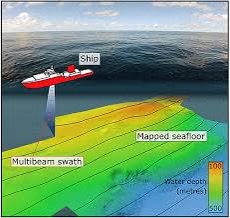Scientists have developed a new technique that allows them to map the location and distribution of ocean plastics from space. This groundbreaking approach could significantly improve our understanding of how plastic pollution affects the world’s oceans.
The technique, developed by researchers at the University of Michigan and the University of Wisconsin-Madison, involves analyzing satellite images to detect and track plastic debris in the ocean. By using machine learning algorithms to analyze the images, the researchers are able to identify and quantify the amount of plastic in the ocean, as well as track its movement over time.
“Our approach allows us to map the location and distribution of ocean plastics in a way that has never been done before,” said the lead author of the study, Dr. Lauren Kipp from the University of Michigan. “It’s a game-changer for our understanding of plastic pollution and its impact on marine ecosystems.”
The study, which was published in the journal Environmental Science & Technology, focused on the Great Lakes region of the United States. The researchers found that plastic pollution in the Great Lakes was much more widespread than previously thought, and that the majority of the plastic was located near urban areas.
The findings have significant implications for our understanding of plastic pollution and its impact on marine life. Plastic pollution is a major environmental issue, with millions of tons of plastic waste entering the ocean each year and causing significant harm to marine ecosystems.
“Our new technique could help us to better understand the extent of plastic pollution in our oceans, and to develop more effective strategies for addressing this issue,” said a spokesperson for the National Oceanic and Atmospheric Administration, which helped fund the study.
The study is a testament to the power of technology in addressing environmental challenges, and it offers new hope for the future of our oceans.
